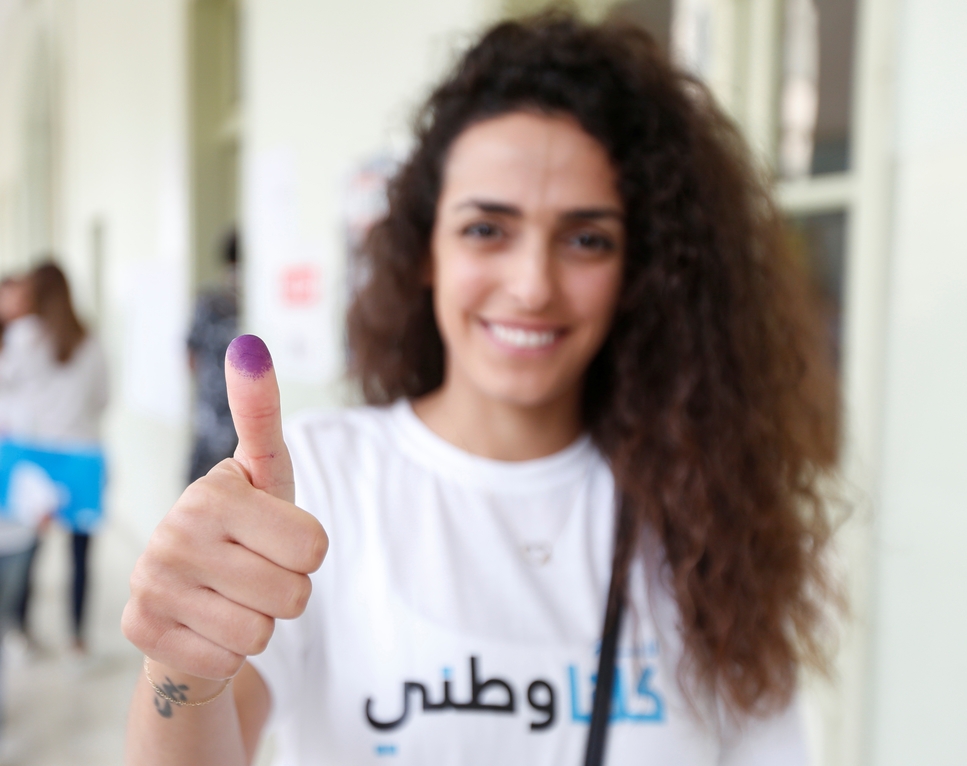Welcome to Lebanese election day!

Hello and welcome to Lebanese election day!
It’s been a long time coming – nine years in fact – thanks to MPs postponing parliamentary elections on three separate occasions, in 2013, 2014 and 2017, citing security issues and problems with the electoral law.
Well today the flames of the Syrian war have receded from Lebanon’s borders somewhat and a new, bafflingly complicated electoral law has been bashed out, meaning Lebanese can once again exercise their democratic right.
It has been a fraught campaign, with rhetoric and tension ratcheting up as polling day approached. On Friday, Prime Minister Saad Hariri, who leads the broadly Sunni, Saudi Arabia-aligned Future Movement, implored Beirutis not to vote for those accused of assassinating his father, Rafic Hariri.
By this, of course, he means Hezbollah, with which he is competing in the key Beirut 2 district, and which looks set to do very well in these elections alongside its allies.
This doesn’t spell well for Hariri, however, who has suffered a series of embarrassments, challenges and financial issues in recent years, most noticeably his seemingly forced resignation in Saudi Arabia that he quickly rowed back on once he was back on Lebanese soil.
Elsewhere, the two largest Christian parties, President Michel Aoun’s Free Patriotic Movement and the former militia leader Samir Geagea’s Lebanese Forces, have been facing off as well.
Foreign Minister Gebran Bassil, who just so happens to be Aoun’s son-in-law and head of the FPM, spent Friday rejecting LF claims his party’s ministers were corrupt, accusing his rivals of being “electorally corrupt” instead.
But with the enforced media blackout that began at midnight on Friday the noise across the country receded, finally leaving Lebanese time on Saturday to reflect and think – who am I going to vote for?
They will be choosing among 583 candidates, who are split up across 77 electoral lists, to fill the Lebanese parliament’s 128 seats.
With the power to elect presidents, write laws and sign treaties, the parliament is a key institution. Who will emerge with the power to guide it?
Middle East Eye will be here all day as the Lebanese make this decision, with constant updates from the ground and the virtual world of social media.

